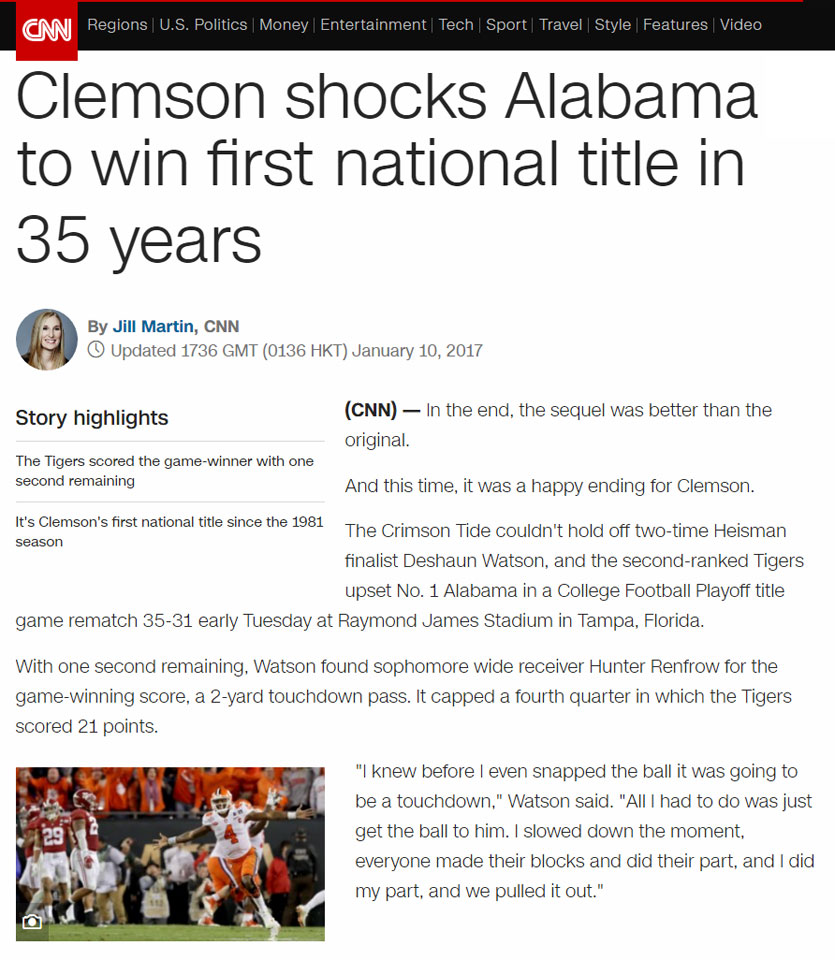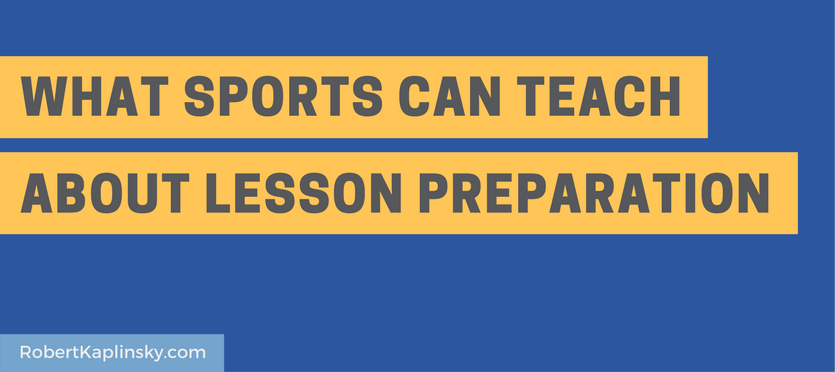The 2017 College Football Championship game came down to the final play with six seconds left. Watch the first 14 seconds of this clip so you understand what happened.
Next, I want you to read the excerpt below from a CNN article, and pay special attention to quarterback Deshaun Watson’s quote at the end.

Think about what it means when he said, “I slowed down the moment.” The implication is that he had practiced situations like this so many times that it became nearly routine. Rather than feeling flustered, he knew what he was supposed to do. He also knew what he would do if things didn’t go the way he planned. It didn’t mean that he felt no stress. It’s just that he felt more confident and prepared for what was to come.
In comparison, think about how he might have felt if he had never practiced this situation. If he hadn’t spent time anticipating what his options were and what he might do if things didn’t go as planned. He likely would have been frazzled and much more likely to make a critical mistake.
So, let’s reflect upon how this compares to math education.
I remember that when I first started doing problem-based lessons like the ones I share, my idea of preparation was making sure that I had the images and videos to show on the projector. Sure, I had done the problem once to get the answer, but that was it. I figured that all the students would do it the same way I did it. Right?
Many nightmare lessons later, I have much better perspective as to how critically unprepared I was. At that point I hadn’t read books like the 5 Practices for Orchestrating Productive Mathematics Discussions. When I finally did, ideas like anticipation made so much sense. Of course it is useful to figure out as many strategies for solving the problem as possible.
It’s obvious to me now, but just like quarterback Deshaun Watson stated, knowing how students might solve the problem “slow[ed] down” the lesson. Things didn’t feel wild and unpredictable anymore because I already knew that a student might solve it that way and I knew what I would do if that happened.
This was game changing for me because the feeling of a lesson turning into a train wreck diminished greatly. Certainly, it takes much more time to prepare for lessons now, but it sure feels worth it when lessons go closer to planned and are less stressful.
What do you think? What resonates with you? Please let me know in the comments.


I actually *like* it when a student surprises me with an unanticipated approach. “Whoa, how does this relate to what I was prepared to talk about?” is a question that can be really productive (and fun) to share and investigate with a class. Not to downplay the value of preparation, but I like for the focus of preparation to be more about being ready to make off-the-rails lessons fun and productive, rather than on trying to prevent them from happening. (OTOH, I am one of those teachers who perpetually has trouble keeping up with the curriculum calendar and I’m sure that’s related to my preference for this approach. 🙂 )
Thanks for the pushback Steve. I think this quote is useful in explaining where I am coming from:
“In preparing for battle I have always found that plans are useless, but planning is indispensable.” – Dwight D. Eisenhower
So, my point is not that I want a scripted experience, but that having thought through how things might go, I am more prepared to be flexible and roll with the punches.
I think this aligns with what you said here: “I like for the focus of preparation to be more about being ready to make off-the-rails lessons fun and productive, rather than on trying to prevent them from happening.”
This is HUGE. I have found that I never anticipate enough. Like you, I consider myself prepared when I have the “stuff” for the lesson. But it’s so much more satisfying to have the whole lesson in my bones and feel ready for anything. Math used to be the subject I prepped for least (I teach English, history, and music, too). It’s now the subject that gets the most thinking and prep–most of the time.
I love that phrase “have the whole lesson in my bones.” It really feels like that when you’ve prepared sufficiently.